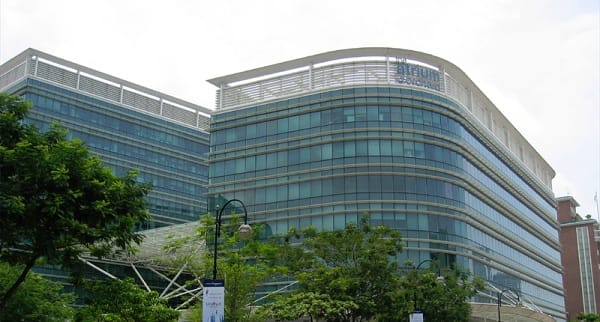Singapore, 24 January 2014 – SINGAPORE’S oldest think tank, the Singapore Institute of International Affairs (SIIA), has topped a list of think tanks in Asia and the Pacific in a global survey. The SIIA improved on its second place ranking in 2012, leapfrogging Australia’s Lowy Institute in 2013 to be ranked first, according to a global survey by the Think Tanks and Civil Societies Program, under the International Relations Program of the University of Pennsylvania. The university released its 2013 Global Go To Think Tank Rankings this week at the United Nations University and the World Bank in Washington D.C.
The SIIA topped the list in a category which excludes think tanks in China, India, Japan and the Republic of Korea. The ranking is into its seventh year, and is the culmination of a six-month process with 6,826 think tanks from 182 countries being invited to participate. An additional 223 think tanks were added to the mix in 2013 compared to the previous year.
SIIA Chairman Simon Tay was honoured and encouraged by the institute’s top ranking performance in the region. He said: “We are a small and independent think tank that aims to punch above its weight by leveraging on our regional network of partners and engaging our key stakeholders both at home and abroad.”
He added: “These rankings, while an encouraging indicator, are just part of what we do, and we will continue to work towards creating greater value for our members and partners.”
The rankings report has become the authoritative source for top public policy institutions around the world. Think tanks are ranked according to criteria such as the quality and commitment of the think tank’s leadership; quality and reputation of the think tank’s staff; quality and reputation of the research and analysis it produces; its reputation with policymakers; as well as the ability to reach and connect with key audiences through traditional and new media, and academia.
This year, more than 1,950 peer institutions and experts participated in the 2013 nominations and selections process across 47 categories, an increase from 36 categories last year. The new categories include classifications such as “Best New Idea or Paradigm Developed by a Think Tank”, “Best use of Social Networks” and “Think Tank to Watch”. The SIIA was listed in 17 of the 47 different rankings.
Aside from the SIIA’s top spot in Asia and the Pacific, the SIIA was also the only Singaporean think tank to be ranked in the fields of Domestic Economic Policy, International Development, Science and Technology, and Transparency and Good Governance. Under the new categories introduced this year, the institute was ranked number one in Asia and the Pacific for having the Best New Idea or Paradigm Developed by a Think Tank, and the one with the Best Transdisciplinary Research Program at a Think Tank. It was also ranked as the top Southeast Asian think tank to watch under the Think Tank to Watch category.
The SIIA, which was founded in 1961, is a non-profit, non-government think tank that focuses on a broad range of subjects and programmes relating to ASEAN and Asia and the environment and resources. It also launched its Future 50 (F50) programme last year, a two-year line-up of workshops and events that aims to map out “The 50 Year Future for Singapore in Asia and the World”. The programme is headed by SIIA’s Executive Director Mr. Nicholas Fang, and SIIA’s Senior Fellow Dr. Parag Khanna. The research gathered from the institute’s F50 events will culminate in a report to be released in 2015 to coincide with Singapore’s 50th National Day.
SIIA’s Executive Director Nicholas Fang said: “The SIIA’s F50 programme is part of the institute’s efforts to develop its work in key areas such as the ASEAN Economic Community beyond 2015, human rights development in the region, and long-term environmental sustainability. The SIIA aims to encourage both public and private discussions on such critical issues that are likely to impact Singapore, the region and the world in the next five decades. We believe this will be a key program that can generate valuable insights and perspectives that will hopefully be of use for policymakers and other stakeholders in Singapore and the region.”
The 2013 Global Go To Think Tank Index and abridged report can be found online at the Go To Think Tank website, or as a PDF download here.




